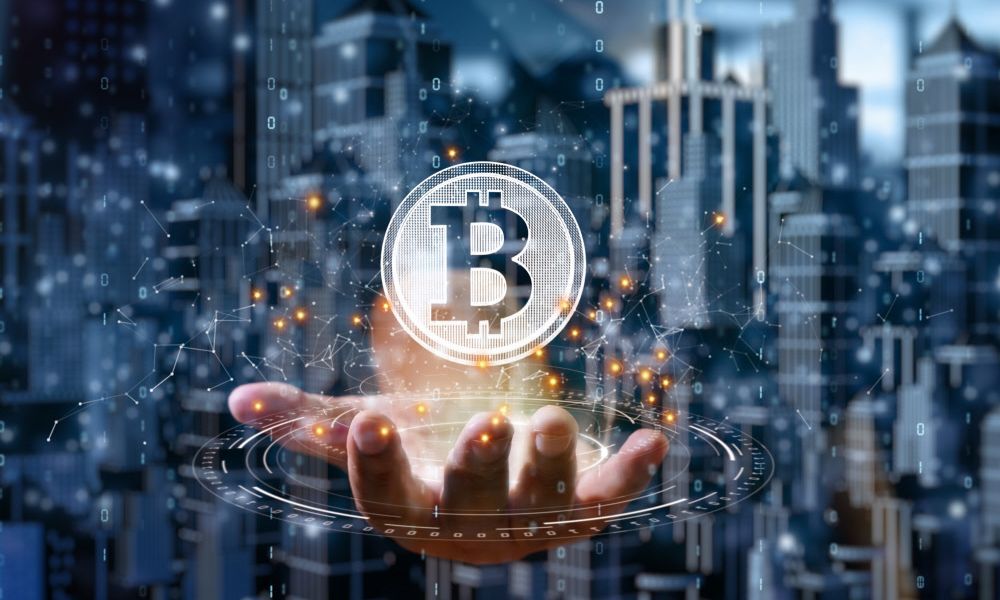04.10.[News of the day] • Dogecoin (DOGE) as a payment method available to millions of consumers • and other articles
5 min readTable of Contents
Welcome to today’s overview of crypto news:
MARKETS
It has been rising steadily since the end of September, when the price of BTC fell below USD 41,000. After several hourly increases, it rose above $ 43,000 and then regained $ 47,000 within a few days.
As a result, it knocked on $ 48,000 on Saturday, where stayed for a while. BTC returned briefly to $ 47,000 on Sunday, but the bulls regained control and sent to north again.
This time, BTC even exceeded $ 49,000 for the first time since the beginning of September. However, he failed to continue upward, and a subsequent refusal led to a drop of more than $ 1,500.
Most altcoins have performed similarly to their leader in recent days. ETH fell to $ 2,900, but the market recovery drove it back above $ 3,400 yesterday. However, a slight retracement in the last 24 hours has now pushed the ETH below this level.
Cryptocurrencies
Dogecoin (DOGE) as a payment method available to millions of consumers
Verifone (NYSE: PAY), one of the world’s leading payment solution providers, announced “the expansion of BitPay’s blockchain payment technology to enable cryptocurrency payments to consumers on the Verifone in-store and eCommerce Cloud Services platforms in the United States.”
In a press release issued on September 28, Verifone said that its new “crypto payment” solution was launched on the day, the result of a partnership with BitPay, the world’s leading crypto payment processor. This solution allows merchants to “expand their customer base and encourage the adoption of cryptocurrencies, while being protected from price fluctuations in cryptocurrency markets.” Verifone expects it to be “easy to implement for retailers and intuitive for customers.”
Several crypto whales have recently snatched over $ 46 million from SHIB
PAC Protocol CEO David Gokhshtein boasted on Twitter that one crypto whale had been able to grab trillions of SHIBs since Thursday.
In a commentary, one of the SHIB activists wrote on Twitter that Shiba Inu has been buying more whales in the last two weeks. The largest purchase to date was worth $ 46 million – about six trillion SHIB.
Later, on Saturday, the same whale received 276 billion SHIBs in three huge sums, in three cases: 116 billion, 159 billion and another billion SHIB. Transactions were completed in just a few hours.
The first BTC-only investment fund was launched in New Zealand
According to a recent local report, Vault Digital Funds has provided New Zealand investors with a new fund called the Vault International BTC Fund.
Through it, they would be able to add this asset class to their portfolio without having to own it directly. Janine Grainger, co-founder of the company, noted that the initiative will have a slightly different focus than most traditional investment funds. It would be suitable for people with an investment plan for more than ten years.
However, Vinnie Gardiner, the company’s CEO and co-founder, warned people dealing with cryptocurrencies of the risks in this area:
“BTC is not suitable for everyone. It’s something that people shouldn’t take lightly. “
Banks, crypto exchanges, companies
Coinbase reports hacking 6,000 crypto accounts after an SMS error
More than 6,000 Coinbase users ran out of money last week because hackers used an authentication flaw to bypass the company’s security feature in the form of SMS, according to technology publication Bleeping Computer.
Coinbase stated that it would reimburse the stolen amounts to compensate for the damages and did not report any further security breaches at the time of printing.
Hackers used the vulnerability to circumvent the SMS authentication feature that Coinbase introduced to ensure user security. They have illegally accessed users’ email addresses, passwords, and associated phone numbers, and used this information to log in.
CBDC, Regulation
The Japanese tax authorities have revealed that profits from cryptocurrencies are insufficiently reported
Japanese authorities are investigating cases of tax evasion resulting from cryptocurrency transitions, as Nikkei revealed on October 3. A total of 1.4 billion yen (roughly $ 6 million) was reportedly unrecognized due to these transactions. Authorities conducted an extensive investigation into cryptocurrency users in the Kanto region and found that many individuals and companies were operating in legally gray areas.
To this end, the Japanese tax authorities will focus on improving the guidelines for taxing the crypto market class. Controlled cities include Saitama, Tochigi, Gunma, Niigata and Nagano.
The report specifically mentions Cardano’s ADA token, which saw a huge price increase this year. Profits from this asset have led to many unrecorded profits this year. ADA is very popular in Japan and many citizens are among the first investors in this cryptocurrency.
Laos will conduct a CBDC study with Japanese start-up Soramitsu
According to a Nikkei Asia report, Laos is another country considering the introduction of a central bank digital currency. The country of Southeast Asia has concluded an agreement with the Japanese startup Soramitsu, which has previously worked on a similar initiative with Cambodia. It has already been released by the CBDC, one that ranked next to the Bahamian sand dollar in PwC’s report on the best CBDC.
The Lao Central Bank and Soramitsu os are examining the feasibility of a CBDC in that country. The initial study will begin by the end of the month as the country seeks to digitize its economy. Nikkei states that the Bank of the Laos People’s Democratic Republic has signed a memorandum of understanding with the Japan International Cooperation Agency on a study on the development of the CBDC.
As with other larger countries working on the CBDC, the national digital currency is expected to help understand how the economy works and offer valuable data. In addition, it will promote financial inclusion, which is a key motivator for many countries. Soramitsu will conduct a study to find out how banks and intermediaries can get involved.






